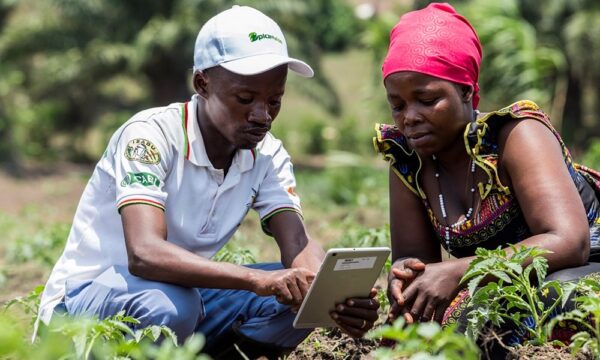
Yesterday, CABI’s Executive Director of Global Operations, Dr Ulrich Kuhlmann, spoke about the importance of agricultural innovation and sharing plant health knowledge at the 5th meeting of the G20 Agricultural Chief Scientists (MACS). As the host country, China chaired the meeting. The G20 MACS took place in Xi’an on 30-31 May 2016, with representatives from G20 countries, as well as international organizations for agricultural research and international development, attending to discuss matters of global food security.
This year’s theme was Agricultural Technology Innovation and Knowledge Sharing. The meeting was geared towards improving cooperation between G20 members and international organizations that work in the fields of agricultural science, technology innovation and sustainable development. It is hoped that greater cooperation will help promote knowledge sharing and innovation in agricultural productivity, and ultimately address global food and nutrition security.
Providing access to scientific knowledge and innovation in agriculture is at the core of CABI’s work. At the G20 meeting, Dr Kuhlmann presented the CABI-led Plantwise programme. He explained its role in strengthening plant health systems through knowledge sharing. Plantwise helps to improve in-country extension for smallholder farmers with the information they need to grow more and lose less to crop pests and diseases.
Dr Kuhlmann said, “Plantwise is meeting a real need among smallholder farmers in developing countries. Plantwise has reached 4.5 million farmers to date. At plant clinics they can access the kind of practical plant health knowledge that helps them enhance their crop productivity and food safety. Knowledge sharing must be improved at national, regional and global levels. Our goal is to keep growing this innovative programme, help countries implement it in their own systems, and create something truly sustainable.”
Dr Kuhlmann also discussed the collection of data at plant clinics and provided examples of how this data can be useful for countries. For example, it allows them to analyse the quality of the recommendations given by plant doctors, and the effectiveness of public vs private sector plant clinic services. It also allows them to analyse whether fewer hazardous pesticides were recommended, and whether plant clinics were reaching out to women.
The MACS also encouraged G20 members to participate in open data networks, such as the Global Open Data for Agriculture and Nutrition (GODAN), in order to promote data and information sharing in global agricultural research. GODAN supports the opening up of data to make information about agriculture and nutrition available, accessible and usable, helping deal with the urgent challenge of ensuring world food and nutrition security. Its secretariat is hosted by CABI.
Related News & Blogs
How strengthening South Sudan’s plant health system can reduce crop losses
In countries like South Sudan, people feel the effects of climate change with greater intensity. For example, increased crop pest invasions. The fall armyworm (Spodoptera frugiperda) damages key crops like maize and sorghum. And the papaya mealybu…
16 December 2024




